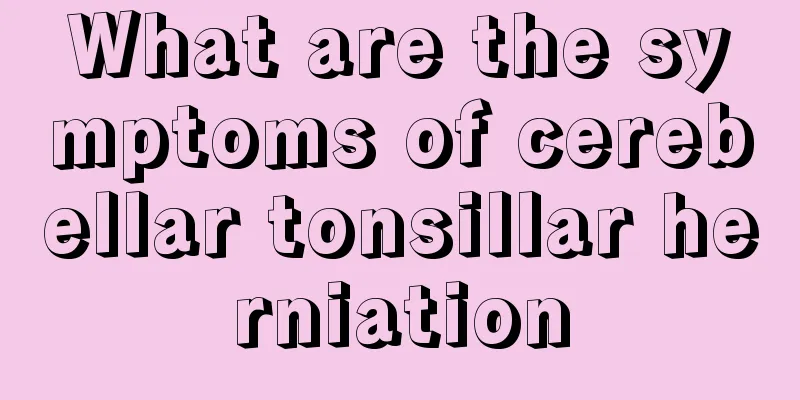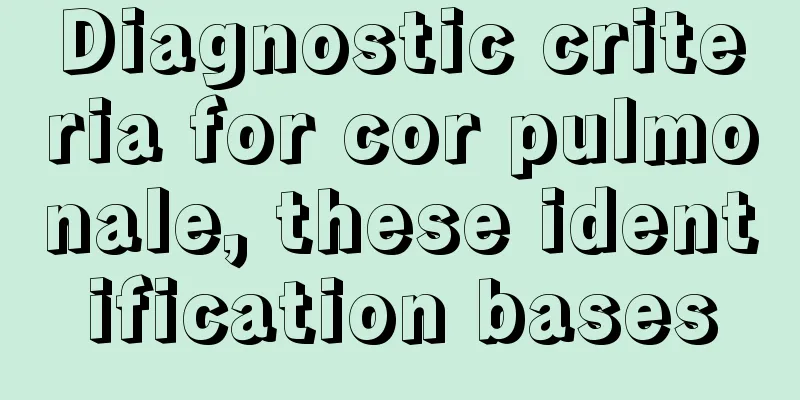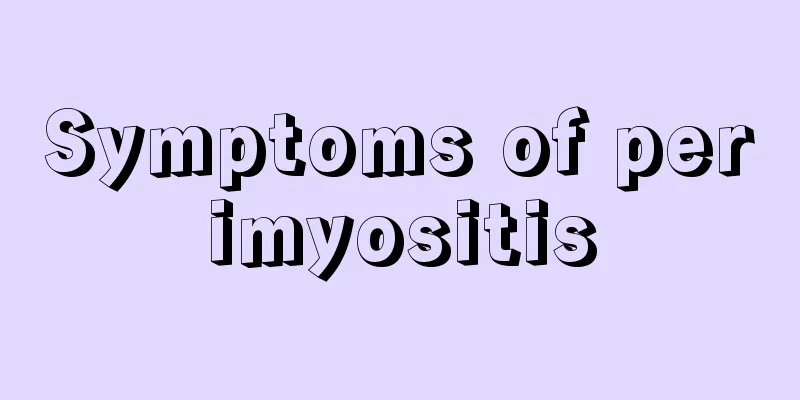What are the symptoms of cerebellar tonsillar herniation

|
Speaking of the brain, it is definitely the most important organ in the human body. Its precision is not inferior to anything else, so brain diseases are more complicated and difficult to treat. Among them, cerebellar tonsillar herniation is one of them. Speaking of cerebellar tonsillar herniation, it is actually a relatively common congenital developmental abnormality. It refers to the abnormal development of the cerebellar tonsils, which causes the lower part of the cerebellar tonsils to drop below the foramen magnum due to the embryonic development, thus causing a series of problems. It will cause the human body to often experience headaches, dizziness, nausea, lack of strength in the limbs, inability to lift things, etc. in daily life. So, what should we pay attention to about cerebellar tonsils? Let’s take a look at its clinical manifestations. 1. Regarding cerebellar tonsillar herniation, attention should be paid to the classification. 1. Type I is the most common in clinical practice, also known as primary cerebellar heterotopia. It is characterized by the normal position of the fourth ventricle, but the cerebellar tonsils herniate into the spinal canal and continue to shift forward and downward. Most patients often have cranial and cervical bone deformities. 2. Type II is also relatively common in clinical practice, characterized by downward displacement of the fourth ventricle and herniation of the cerebellar tonsils into the spinal canal. Most patients often have hydrocephalus and myelomeningocele, and a small number of patients may have abnormal neuronal migration. 3. Although type III is rare in clinical practice, it is indeed the most serious type, characterized by herniation of the cerebellar hemisphere into the upper part of the spinal canal. Most patients often have occipital bone malformations and head and neck deformities. A small number of patients often have cerebellar malformation and occipital meningoencephalocele. 4. Type IV is relatively rare in clinical practice, with newborns as the main victims. It is accompanied by cerebellar hypoplasia and brainstem hypoplasia, but unlike type III, the cerebellar hemispheres do not herniate into the spinal canal. 2. Regarding cerebellar tonsillar herniation, pay attention to the clinical manifestations. Clinical manifestations are what many patients should pay attention to. The onset of cerebellar tonsillar herniation is relatively common, and most patients occur in women. Type I onset occurs in children or adults, types II and IV onset occurs in infants, and type III onset occurs in newborns. Its common clinical manifestations include neck pain, arm pain, and a burning sensation. The pain is mostly occasional, but a small part of the pain is persistent. In addition to pain symptoms, patients may also experience systemic symptoms such as dizziness, muscle weakness, and tinnitus. If symptoms occur, seek early treatment. |
<<: What are the methods to lower uric acid?
>>: What are the methods to control white tarragon
Recommend
What are the dangers of alanine aminotransferase 65
Some patients who are familiar with alanine amino...
Can sour jujube leaves cure insomnia?
Many people suffer from insomnia due to excessive...
What is the reason for swollen feet after standing for a long time
In our lives, many people need to stand for a lon...
How to recover from wrist pain after working out?
In daily life, if you accidentally get hurt by th...
What should I do if I can't stop my nosebleed
Some people find that when they have a nosebleed,...
Can advanced brain cancer be cured?
Can advanced brain cancer be cured? 1. Intracrani...
What kind of spots appear on the face?
Improper facial care will not only cause rough an...
In the early stage of nasopharyngeal carcinoma, there will be symptoms of swollen lymph nodes in the neck
Nasopharyngeal carcinoma is a malignant tumor tha...
Lung cancer brain metastasis, face turns green
Lung cancer brain metastasis face turns green Bra...
The therapeutic effect of honeysuckle oral liquid
Jinhua oral liquid has the effect of treating sum...
What medicine should be used for thorny thorns
In summer, you can often see green, soft insects ...
What are the first aid methods for myocardial infarction
Patients with myocardial infarction are very comm...
Table of contraindications for taking anti-inflammatory drugs
In fact, in life, many people don’t know what the...
Can people with fatty liver eat peanuts?
Peanuts are a common food in our lives. They cont...
My face feels hot when I wake up in the morning
If people's skin is in a cold state and is su...









